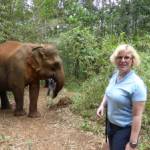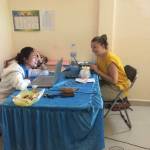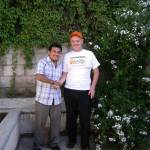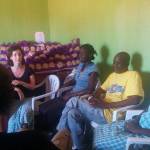Back in 2014, Dustin first volunteered through AfID for a community development programme in Cambodia. He undertook a second AfID placement in late 2018, supporting an educational charity in Guatemala — this time accompanied by his wife, Nancy, who volunteered alongside him as a plus one in a teaching capacity.
In 2019, Dustin took the next step and transitioned into the charity sector full-time, taking up the position of U.S. Controller at Compassion International, a Christian children’s development non-profit organization based in Colorado Springs.
Dustin was previously an established controller with over 20 years of experience, much of which was in the waste industry. Prior to his first placement, he had been considering a career change at some point down the road — but he didn’t really know what that meant or what his options were.
While volunteering, Dustin became aware of the urgent need for financial consultancy and support in the charity sector. Read on for our chat with Dustin about his volunteering efforts and career, and how his experiences have led him to a compassionate accounting role.
Why did you choose to volunteer with AfID? Was it part of a planned career change?
Our family loves to travel and volunteer, and AfID’s placements seemed like a good combination of our two joys. We find that traveling is more memorable if you connect with the locals, and we thought this would be a great way to do that. Prior to my first placement back in 2014, I had been considering a career change down the road at some point – I just didn't know what that meant or what my options were.
What were the biggest lessons you learned from your volunteering experiences?
I learned so much that it's hard to narrow it down to a few things. Most importantly, I realised that I have valuable skills that people need. I had always known that I had skills, but didn't recognise that the need was so great, and that they were needed in such remote locations all around the world. I also learned that having a common goal and interest easily overcomes obstacles like different languages or cultures. Finally, I learned that I truly have a passion to help, even in accounting. During both of my AfID placements my stress levels went down and my enthusiasm went up, and when I returned home people commented on how I light up when I talk about my experiences.
Why did you choose to work in the charity sector? Did you have any worries?
I decided to move to the charity sector because I needed to follow that passion to help, but I certainly had concerns. Moving to non-profit is a big change. I was an established controller with more than 20 years of experience, much of which was in the waste industry, and I wondered how much of that would translate to a day to day non-profit role. Would I start over at the beginning? What I’ve discovered is that while there is a lot to learn on the non-profit side, the basic business acumen still holds true. In fact, I didn't realise that my background actually adds a different viewpoint to conversations, and that's a good thing. Switching to non-profit has forced me to remain open to learning new things, but the transition has actually been easier than I expected.
Can you tell us a little about your current role and your path to getting there?
As the US Controller for Compassion International, I lead the accounting team in preparing the organisation's financial statements. Much of my time is spent speaking into accounting issues, or being the accounting voice within various areas of the business. This is my first full-time position in a charity. I have volunteered as treasurer of various organisations in the past, so that gave me a bit of a foundation for non-profit accounting. As for my accounting career, I have held various roles, from AP clerk to bookkeeper to auditor to tax accountant.
I have been a manager for about 15 years, most recently being a division controller in a multinational waste company. I find much of my new role at Compassion to be similar to my last one: managing people in an accounting department. Some of the accounting rules are different in non-profit, but that's what keeps it interesting.
Do you feel your voluntary experience with AfID helped you gain your current role at Compassion International, as well as prepare you for life in the sector? If so, how?
My experiences with AfID actually opened my eyes to the need in non-profit work, and definitely ignited a passion within me to help those in need. It increased my comfort level with doing something new and different, and made me realise that a career path doesn't always have to follow in a straight line. We should go to where we are happy, and in my case, that's helping others. Volunteering my finance skills pro bono definitely increased my understanding of the challenges and struggles in the charity sector, and that has helped tremendously when coming to Compassion.
What are the main differences between a finance role in the corporate and charity sectors?
In both sectors I was responsible for preparing accurate financial statements so that we could make good financial decisions. However, the difference is the goal behind those decisions. In the corporate sector, the goal is to maximize profits or shareholder value. I would find multiple way to boost margins. At Compassion, the goal is to reach as many needy children as possible. I need to ensure we spend effectively and responsibly, with accountability.
What would be your advice to other accountants considering a similar career change or looking to break into the sector?
The key really is to think flexibly. The non-profit sector is very different, and more challenging than some people might think. It's important to keep an open mind, be able to collaborate and hear other points of view, but still make a decision and move forward. As a manager working in a charity, I've also noticed that many people are in it because of the mission and a desire to do good. There is less motivation around a paycheque or an annual bonus and more motivation toward self-improvement or one's ability to impact the organization. We need to be open to that, and manage differently as a result.
What sort of experiences and qualities should accountants aspiring for a career in the non-profit sector strive for? What crucial transferable skills are needed?
As a baseline, it would be very helpful for an accountant to have at least some volunteer accounting experience at a charity, be it as a treasurer or bookkeeper or auditor. This would provide a basic understanding of non-profit accounting in the real world. If an accountant wants to work in an organization like mine, which has operations in developing countries, I would like to see them have at least some experience abroad, such as the placements AfID provide. Extensive travel abroad would be helpful as well. Another helpful skill is collaboration with or leading a team. People in the charity sector come from diverse backgrounds and it's important to be able to effectively work together.
Additionally, being a patient teacher and communicator is an excellent skill to have. As mentioned before, people in charity aren't necessarily driven by the same factors as people in the corporate sector – they also might not have as much accounting awareness. It's very important to listen lots and speak less, be cognizant of feelings and opinions, and make changes thoughtfully and transparently.


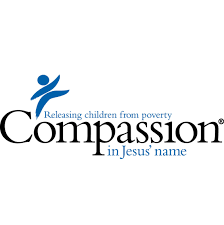
 Name
Name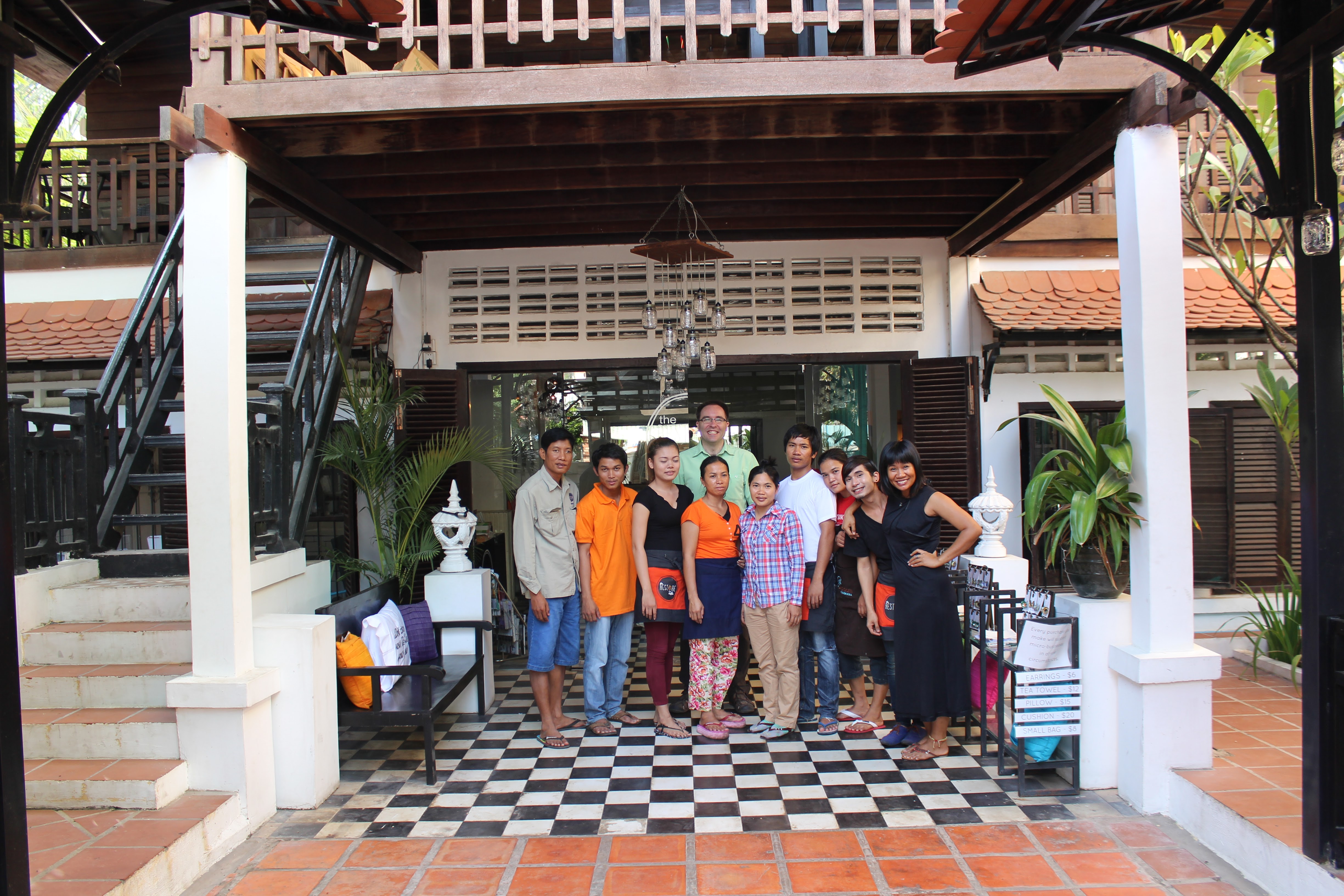
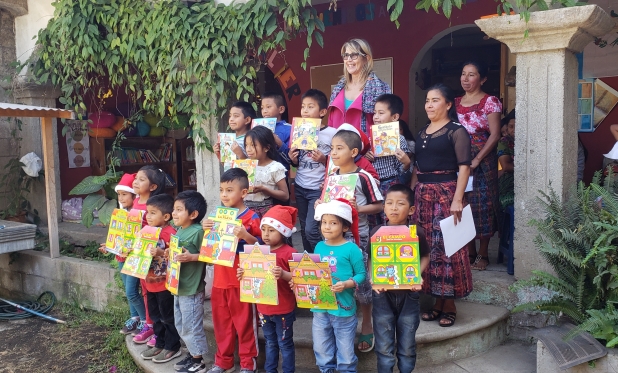
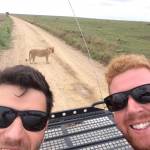

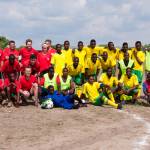

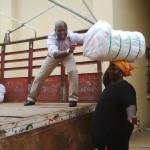

_adaptiveResize_150_150.jpg)
_adaptiveResize_150_150.jpg)
